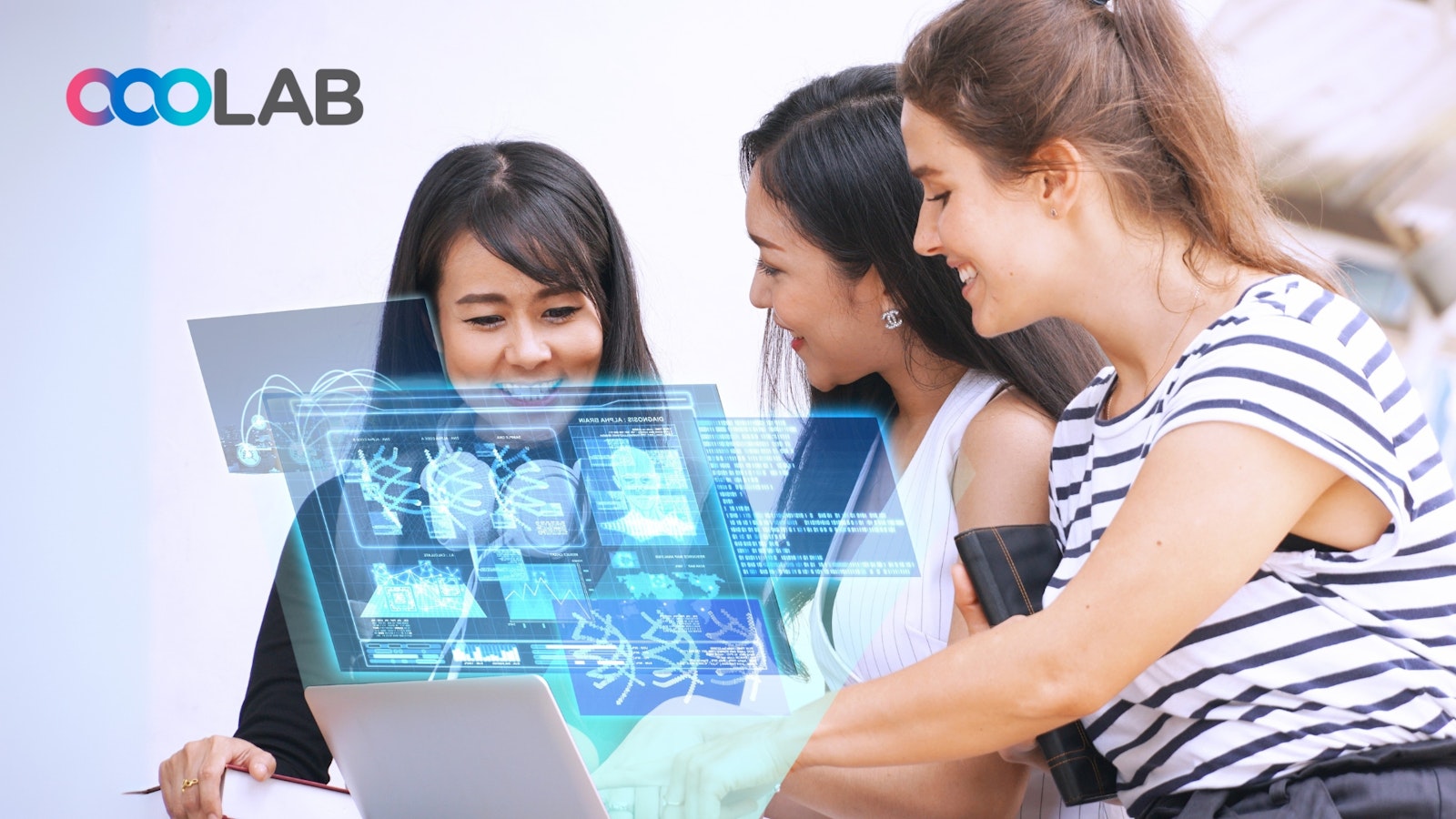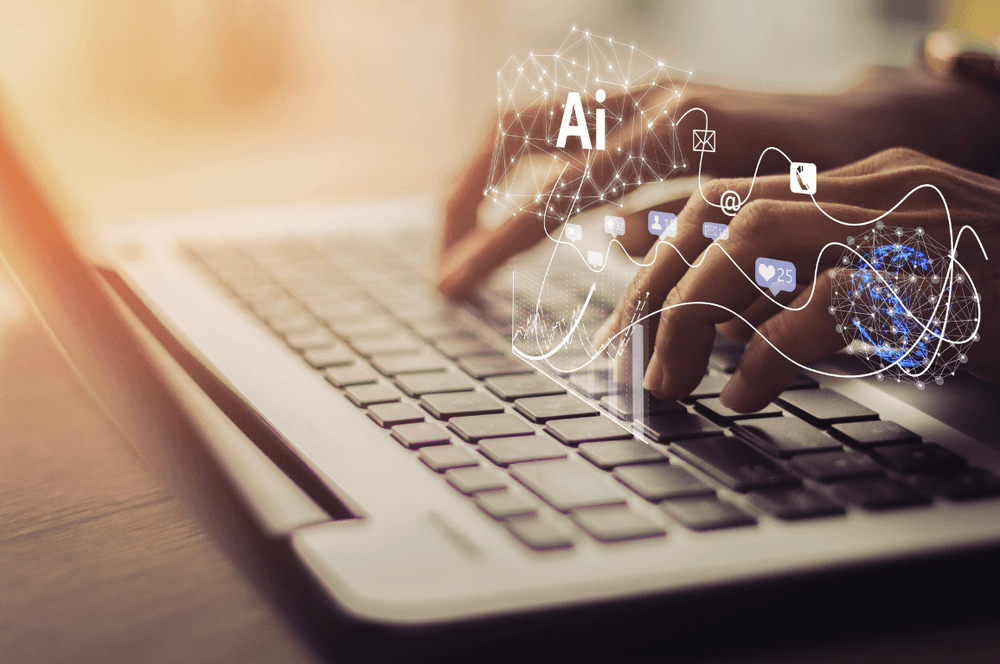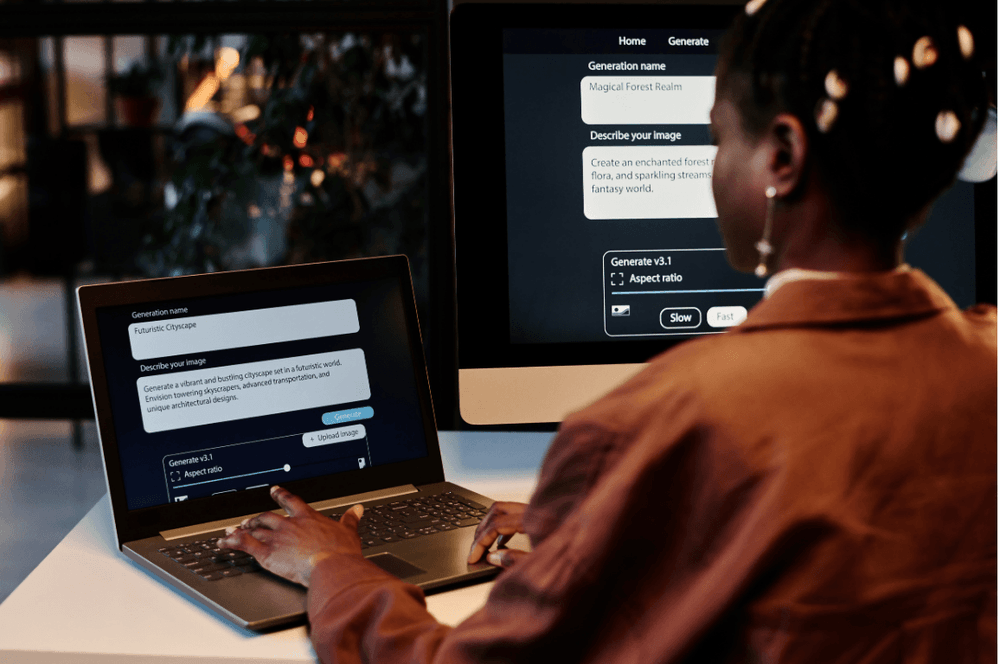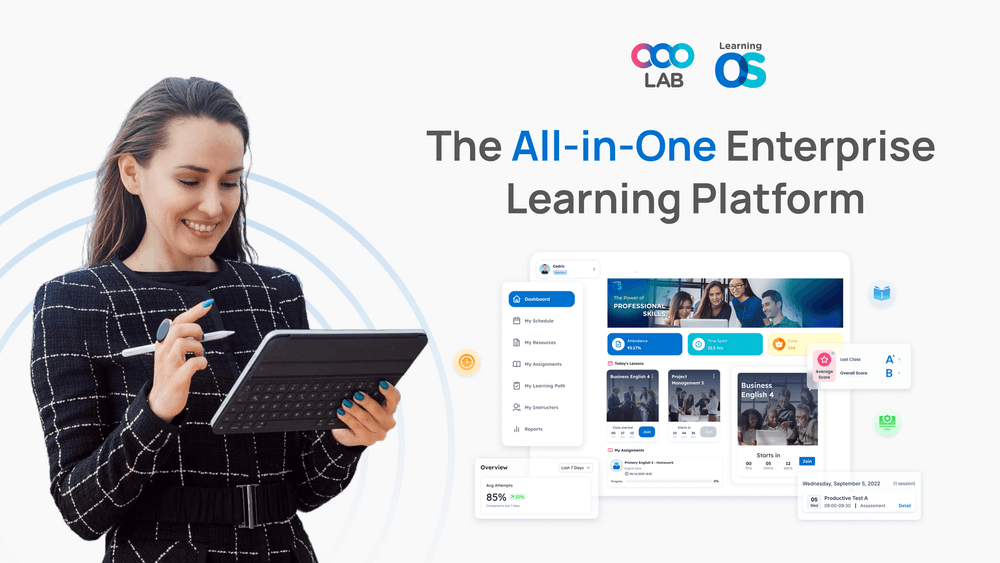

In today’s fast-evolving corporate landscape, the demand for smarter, more agile learning solutions has never been greater—and artificial intelligence is leading the charge. According to eLearning Industry, AI is driving a new era of learning innovation, where systems are not just reactive but proactive, capable of anticipating learner needs and optimizing outcomes.
Traditional Learning Management Systems (LMS) are being transformed into intelligent platforms that adapt to individual learning needs, deliver predictive insights, and streamline training at scale. According to Future of Jobs Survey 2025, AI emerges as the most anticipated workforce strategy in 45 of 55 surveyed economies—with 77% of employers planning to implement AI-powered upskilling initiatives (World Economic Forum, 2025, p. 62).
This shift toward AI-powered LMS platforms is redefining how organizations approach workforce development, performance optimization, and digital transformation. According to Fortune Business Insights, the global market for AI governance is predicted to grow from USD 176,788 thousand in 2024 to USD 2,291,494 thousand by 2032, exhibiting a CAGR of 37.7% over 2024 to 2032. In 2023, the market value stood at 125,886 USD.
In this blog, we’ll explore (I) how enterprise AI LMS solutions are revolutionizing corporate learning, enabling organizations to deliver scalable, personalized, and data-driven training experiences. We’ll also address (II) the key benefits for corporate training, and importantly, the (III) challenges and considerations organizations must navigate.

>>> Read more: AI is Transforming Corporate Training: Here's What You Need to Know
>>> Read more: AI LMS vs. Traditional LMS: What’s the Difference and Why It Matters?
>>> Read more: Transforming Learning & Development: Discover LearningOS
For L&D leaders in large enterprises, implementing an AI-powered LMS is no longer just a tool for content delivery—it’s a strategic engine for onboarding, upskilling, and building a workforce capable of adapting to change. Here are the key AI-driven innovations that are transforming enterprise learning at scale:
AI algorithms analyze individual learner data—such as performance metrics, learning preferences, and career goals—to create customized learning journeys.
This personalization ensures that employees receive relevant content that aligns with their specific needs, thereby improving learning outcomes and engagement:
Companies with strong learning cultures experience 36% higher employee productivity, according to Deloitte.
90% of employees are more likely to remain at companies that support their growth (LinkedIn Workplace Learning Report, 2025).
Taking the new hires’ onboarding journey as an example, AI enables the rapid creation of tailored onboarding journeys based on an employee’s role, location, previous experience, and even performance in early assessments. Instead of a generic onboarding process, new hires receive curated modules that accelerate ramp-up time, reduce information overload, and foster faster time-to-productivity.
>>> Read more: The Future of AI LMS: Personalized Learning at Scale
>>> Read more: How AI-Driven LMS Solutions Personalize Skill Development for Employees
For large enterprises managing complex learning ecosystems, predictive analytics in LMS platforms unlock a new dimension of workforce planning. By analyzing learner behavior, assessment results, engagement metrics, and performance data, AI can forecast learner progress, identify individuals at risk of disengagement, and recommend interventions before gaps widen.
During onboarding, predictive models can flag when a new hire is falling behind in compliance or struggling with key role-based content. For mastery, these systems identify patterns that signal readiness for advancement—or the need for reinforcement. This allows L&D teams to deliver high-impact, targeted learning pathways rather than one-size-fits-all programs.
>>> Read more: A Game-Changer for Measuring and Boosting Skill Quotient
>>> Read more: From Data to Insights: How AI LMS Improves Learning Outcomes
Much like Netflix for learning, AI-powered content recommendation engines use algorithms to deliver personalized learning resources based on user roles, past behavior, skill goals, and peer trends.
For enterprise L&D, this eliminates the noise in vast content libraries and drives continuous learning without manual curation.
During onboarding, AI can recommend bite-sized explainer videos, company-specific policy briefings, or scenario-based simulations tailored to the employee’s department or region. As employees grow, the system evolves—recommending advanced certifications, leadership modules, or peer-generated content based on their trajectory and business needs.
>>> Read more: Why is Employee Upskilling Non-Negotiable for Business Success
>>> Read more: Building Confidence in Your Sales Team Through Training and Development
AI-powered chatbots and virtual tutors are becoming indispensable tools for delivering scalable, 24/7 learning support—especially during high-volume onboarding or hybrid work environments. These digital assistants answer learner queries, provide instant feedback, suggest relevant resources, and guide users through complex LMS workflows.
For new hires, this means immediate access to help without waiting on HR or trainers. For mastery programs, virtual tutors can facilitate practice sessions, offer coaching tips, or simulate real-world challenges—freeing L&D staff from repetitive Q&A and enabling them to focus on higher-value work.
Book a Free Demo with us. Bring your Training and Learning to a new height with LearningOS.
 >>> Read more: Strategies To Improve Team Skill Quotient
>>> Read more: Strategies To Improve Team Skill Quotient
Today’s workforce—especially younger generations—is looking for more from their learning experiences. According to Deloitte’s 2025 Gen Z and Millennial Survey, access to meaningful development opportunities is a key factor in how employees choose where to work and how long they stay.
AI-powered LMS platforms help address this need by delivering learning that feels more personal and relevant. Whether someone is new to the company or building toward long-term goals, AI can adapt training content based on their role, experience, and progress—leading to better engagement, stronger retention, and more confident performance.
For L&D teams, AI provides access to insights that go beyond completion rates. It helps answer questions like: Are learners making progress? Where are the challenges? What skills are developing over time?
These kinds of insights make it easier to adjust programs, prioritize needs, and connect learning with broader workforce goals. Deloitte’s report notes that 74% of organizations say their most advanced AI initiatives are meeting or exceeding ROI expectations, with nearly 43% meeting and 31% exceeding them (State of GenAI Q4 2024, pg.22). That signals growing confidence in using AI to support more thoughtful, evidence-based decision-making.
Managing learning at an enterprise scale can be complex. AI helps reduce that complexity by automating many of the manual tasks that come with delivering training at scale—things like assigning content, tracking compliance, and sending reminders.
At the same time, AI helps maintain a consistent learning experience across teams, departments, and geographies. As Deloitte’s research shows, many organizations are already integrating AI into their broader workflows, which suggests growing momentum for solutions that can scale smoothly and fit within existing systems (State of GenAI Q4 2024, pg.22).
Book a Free Demo with us. Bring your Training and Learning to a new height with LearningOS.
>>> Read more: How to Measure ROI from Your Enterprise LMS
>>> Read more: Must-Have Features in an Enterprise LMS in 2025
>>> Read more: Customization Options for Enterprise LMS
Despite the transformative benefits of AI-powered corporate LMS platforms, the path to adoption is not without obstacles.

One of the foremost challenges is skill gaps and organizational readiness. According to the Future of Jobs Report 2025 by the World Economic Forum (WEF), 63% of employers identified skill gaps in the local labor market as the biggest barrier to business transformation, which directly affects the successful implementation of enterprise AI LMS solutions.
For organizations looking to integrate these advanced systems, lacking internal expertise to manage and optimize AI tools can significantly hinder outcomes.
Industries that lack digital maturity or robust IT infrastructure may struggle with the integration of AI systems, including intelligent content delivery and AI-driven talent assessment tools. Due to WEF’s report 2025, only a small fraction of firms had broadly adopted AI, and adoption remains uneven across sectors.
In addition to that, Brandon Hall Group™ also found that integrating an enterprise AI LMS with existing HR systems can be resource-intensive and requires new skill sets, which many organizations currently lack. Their HR Outlook 2025 highlights that 37% of organizations struggle with technical complexity, and many face "measurement paralysis," where they are unable to demonstrate the business impact of learning efforts due to fragmented data systems and poor strategic alignment.
Another leading concern is data privacy and security. As AI systems require extensive data to deliver personalized learning, conduct AI-driven talent assessment, and generate predictive insights, which raises concerns around data security and ethical use become critical.
According to the HR Outlook 2025, 59% of organizations cite data privacy concerns as a top barrier to leveraging AI in learning (Brandon Hall Group™, 2025, pg.9) . Companies must navigate complex regulatory environments while safeguarding employee trust and adhering to compliance standards.
As organizations move toward next-gen corporate learning solutions, these challenges emphasize the need for (1) strategic planning, (2) strong internal capabilities, and (3) cross-functional collaboration to fully realize the benefits of AI in enterprise learning.
As organizations navigate rapid digital transformation, adopting an AI-powered LMS is no longer a forward-looking experiment—it’s a strategic necessity. By leveraging AI for personalization, automation, and workforce analytics, enterprises can unlock smarter, more scalable training while closing critical skill gaps.
Yet success depends not only on technology, but also on organizational readiness to address data privacy, integration complexity, and evolving talent needs. For companies committed to building agile, future-ready teams, an AI LMS for corporate training offers a powerful path forward in reshaping learning for long-term impact.
Book a Free Demo with us. Bring your Training and Learning to a new height with LearningOS.

>>> Read more: Steps to implement an Enterprise LMS
>>> Read more: Transforming Learning & Development: Discover LearningOS
>>> Read more: How an AI-Powered LMS Enhances Employee Training and Performance
>>> Read more: How AI is Enhancing Capability-Based Learning in LMS Platforms
At OOOLAB (pronounced 'uːlæb'), our mission is to make complex learning operations simple. We aim to positively impact the lives of over 1,000,000 learners and educators by the end of 2026.
OOOLAB's LearningOS provides educational institutions and corporate enterprises with an all-in-one solution to create and deliver engaging learning experiences.
We meet organizations' needs or support your growth. We provide undivided attention. We provide:
Dedicated success manager: We offer direct communication with a real human who'll discuss your enterprises unique learning operations and goals.
Personalized setup: Our team will help you transition to LearningOS on your schedule, one step at a time.
Around the clock support: Get help from us any time, and in any time zone.
Reach out to us at: LinkedIn, FaceBook
1. What are the main benefits of LearningOS?
Our platform is easy to use and automates all aspects of your learning operations. It efficiently manages complex tasks, allowing you to concentrate on delivering exceptional learning experiences.
2. What main features does LearningOS offer?
Our all-in-one software solution combines a Content Management System, a Learning Management System, content authoring tools, and a mobile friendly Learner Portal.
3. Can your platform be used for corporate enterprises?
Absolutely! LearningOS is an Enterprise LMS that is a great fit for corporate learning. In fact, we have clients with up to 700,000 employees using LearningOS! Upskill your workforce by creating and assigning interactive eLearning content while effortlessly tracking employee progress.
4. Who currently uses your platform?
Our platform is currently used by over 120,000+ learners, parents, and employees across 21 countries worldwide!
5. What types of content options are available on your platform?
We offer ready-to-go curriculums for various educational purposes or our expert design team can build a custom course for you. We can also upload your existing learning materials and enhance them digitally.
6. What is unique about LearningOS?
Our platform, designed by educators for educators, provides you with all the tools you need to scale. Build and promote your own hybrid and blended learning courses and save money on licensing fees by owning your own proprietary content.
7. How can I get started?
Schedule a meeting with our experts and we’ll talk about how our platform can address your unique challenges and help to grow your business.